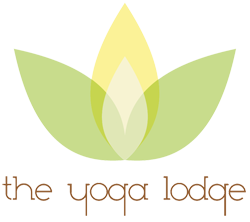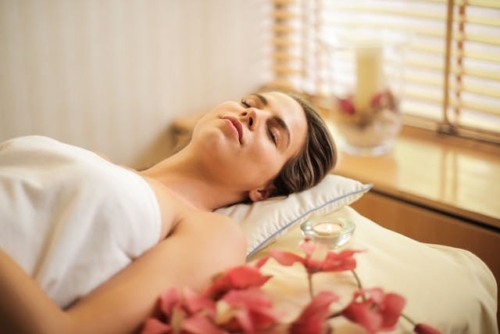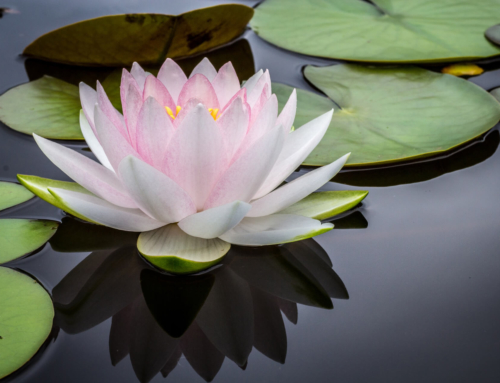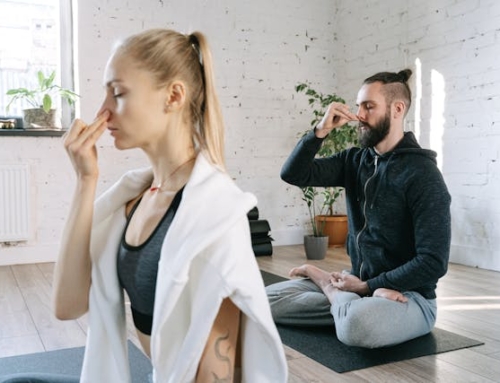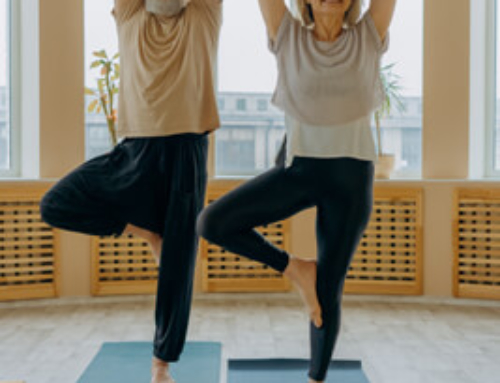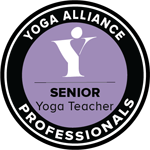Welcome to my blog …. Have you ever met a relaxed woman? If your days are a blur of stress, anxiety and exhaustion, then read this is an article I found by Psychologist Nicola Jane Hobbs, who shares the benefits of cultivating a laid-back mindset, I hope you enjoy reading it as much as I did!
Most woman’s to do lists are so extensive that the term “relaxed women” sounds like an oxymoron. I spent much of my adult life as the opposite of a relaxed woman. My days were a blur of stress, anxiety and exhaustion. I wasn’t like this as a little girl. I was sensitive, curious, playful and wild. Resting came naturally. There was no shame in slowing down. But somewhere between girlhood and womanhood, I started basing my self-worth on who I pleased and how much I achieved. As I absorbed society’s message of what a “good girl” and “successful woman” should be – self-controlled, self-silencing and self-sacrificing – I lost touch with my inner wisdom, my intuitive voice, my authenticity.
I started living as if I were a machine. I overworked, traded sleep for productivity and stayed compulsively busy. There was a time in my late 20’s when I’d leave the house before sunrise, drive two hours to one of my jobs at a professional football club, return to teach yoga classes, visit my dad who was having chemotherapy and finish the day by studying into the night to become a psychologist. I was exhausted but pretended I was fine. Until one day, I couldn’t pretend anymore.
I began experiencing episodes of sleeplessness, migraines, mental fatigue and physical exhaustion, as well as irregular period and gastrointestinal problems – all warning signs of burnout.
Becoming Freer Of Stress And Anxiety
Over the next few years, I explored a more relaxed way of being. I allowed myself to rest – to nap, read fiction, wander by the ocean, potter in the garden, bake banana bread, play board games. I set stronger work boundaries and enjoyed slower, spacious, intentionally unproductive weekends.
Slowly, I sensed the relaxed woman began to awaken within me. My partner noticed me becoming more relaxed and more at home in myself. He commented on how my to do list had grown shorter as I became realistic about how much I could get done in a day. I felt it too, I don’t use the word relaxed here in its modern, commodified sense of expensive spa trips and luxury wellness products, but in its original sense of the Old French “relachier” meaning “to release, to liberate, to set free”. The state of being a relaxed woman is not limited to those without family responsibilities or children – and I say that as the mother of a spirited toddler!
The relaxed woman is a woman who is free. She might not have the most white space on her calendar or be free from stressors, responsibilities and deadlines, but she is free from unrealistic expectations, from perfectionism, compulsive business and the myth that her worth is tied to her productivity. She feels free to rest without guilt, to honour her body, to set boundaries and trust her intuition. Yet most women don’t feel relaxed or free.
Working as a psychologist and therapist, I sensed a similar story to mine rippling through the lives of women I’ve had the privilege of supporting. Research reflects the same level of stress and fatigue – 46% of working women are burned out, 49% of mums feel burned out by motherhood and 81% of women report feeling so stressed at some point over the last year, they felt overwhelmed or unable to cope.
I began looking into why so many women are exhausted, but after finding a void when I tried to find resources on the psychology of rest, I carried out my own research study. I discovered that the cost of not getting enough rest is vast. It can lead to anxiety, insomnia, exhaustion, migraines, gut issues, hormonal imbalances, chronic pain, fatigue, sensory sensitivity, emotional reactivity and disconnection with ourselves. Women need to reclaim their right to rest.
Learn And Nuture
It makes sense that so many of us find it difficult to relax and when so few of us have been taught how to recover from stress and honour our need for rest. In fact, most of us have been taught the opposite – to work hard, push through, be more disciplined, have more self-control and never quit. Becoming a relaxed woman is a process of unlearning and learning, of nurturing our inner resources and replacing the stress-inducing habits that we often engage in subconsciously – rushing, ruminating, masking, overthinking, over-planning, overworking and over-controlling – with practices, skills and rituals that soothe our nervous systems, build our resilience and enrich our lives. Why not give the practices below a go?
Here Is How You Can Recover From Burnout
Start By Befriending Your Nervous System
If you feel anxious or restless, it is likely your nervous system is in a state of fight or flight. If you feel shut down, it may be in a state of “freeze”. And if you feel present and calm, it’s likely in a state of safeness. This awareness of the state of your nervous system is in – without judgement – can soothe it and invite a sense of relaxation back into your body.
Embrace Micro-moments Of Rest
Weave rest rituals throughout your day – s-l-o-w-l-y- moisture your face, savour the first sip of coffee or pause and turn your face towards the sun while hanging out the laundry. These moments may seem insignificant, but they offer your nervous system consistent signals of safeness, gently switching off your stress response and preventing escalation into burnout.
Give Yourself Permission To Say No
We all have a right to time, space, privacy, freedom, rest and respect. Get to know when you need to set a boundary by tuning into the physical sensations that arise – tension, heat, heaviness, throbbing – when requests are made of you or you feel frustrated, disrespected or unappreciated. As you become more confident sensing how “no” feels in your body, you’ll build the confidence to express it by setting boundaries that will protect your right to rest.
Open Your Mind To New Thoughts
The way you think can keep you trapped in cycles of stress, business and burnout – or free you. Bring to mind a limiting belief you have around rest – common ones include “Rest is selfish” and “I have to earn the rest”. Now imagine what would it be like if you believed the opposite. “I give myself unconditional permission to rest” and “I’m allowed to rest”. How might the way you speak to and take care of yourself change? What might you do differently at work and in other areas of your life?
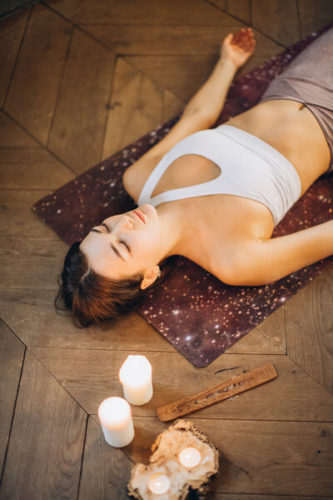
Let Others See You Rest
Let your family see you sit down with a cup of tea, even though there are dishes still to do. Let friends see you leave early. Let your colleagues see you step away from your laptop at lunchtime. Allowing other people to see you rest is how we break the cycle of women over-functioning and over-giving – and create a new cycle where rest is no longer shameful, but sacred.
How Yoga Can Help You
Yoga is often a discipline a person turns to when “life” just gets out of hand, or is not quite right, or when one may be experiencing it physically or psychologically in the many ways this article suggests, i.e. insomnia, exhaustion, migraines, gut issues, hormonal imbalances, chronic pain, fatigue, sensory sensitivity, emotional reactivity and disconnection with ourselves. All of which, has an impact on our well-being and of course, on our immune system.
Yoga has been practised by millions of people and is known as the oldest science of life – it can teach you how to cope and deal with the stresses and strains that modern living can place in your path. Hatha Yoga works by releasing tension from body and mind. When this happens our energy increases. Anyone can benefit from its practise.
Posture practice helps to increase energy, it massages the internal organs, reduces muscular aches and pains and strengthens the entire body. It therefore helps stretch away tension, tones muscles, joints and the spine, aiding good posture in general. This helps prevent backache and encourages deeper breathing.
Good Breathing will increase energy and boost self-confidence. Breathing exercises help to quieten the mind and calm the emotions. Through the intake of increased oxygen all the cells of the body are nourished. This will help to lower high blood pressure, calm the nervous system thereby reducing anxiety, and stop the mind from worrying.
Relaxation practice will help to ease away harmful stress, thereby allowing a better quality of sleep. Better sleep will provide more energy and positivity during the day. It will help to sharpen the mind, improve our awareness and encourage a happier and more contented internal world.
Visualisation and Meditation practice helps create the inner strength required to deal with life’s ups and downs. Again, it will sharpen the mind and encourage a happier and more contented internal world.
Diet: The Bhagavad Gita states …”This yoga is not possible for the one who eats too much or who eats too little …” The yoga masters of old knew it was important to be temperate and aware of our food. In yoga, our body is the vehicle of life. Eating wisely is an important part of yoga practise and eating to give balance and harmony, is true yoga.
Come and give The Yoga Lodge classes a go. Classes are welcoming, small and friendly.
Take your first steps today by calling 07973 410375 or emailing pavana@theyogalodge.org.uk
